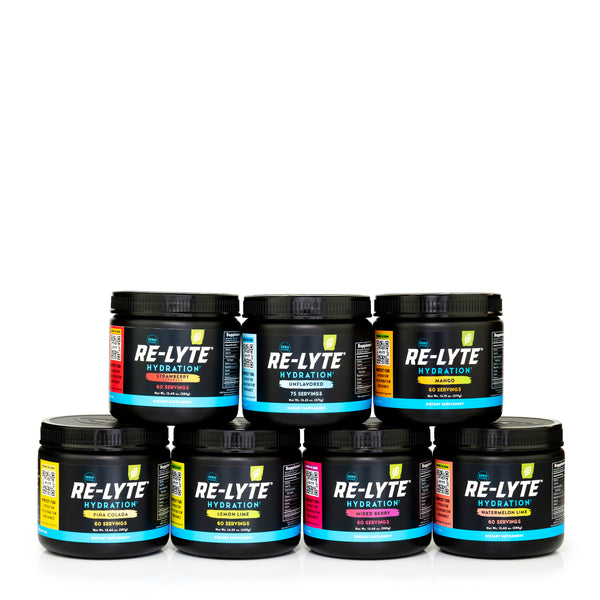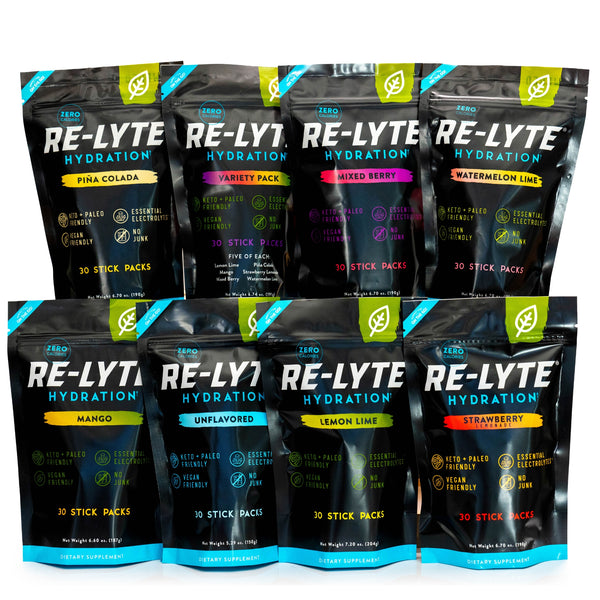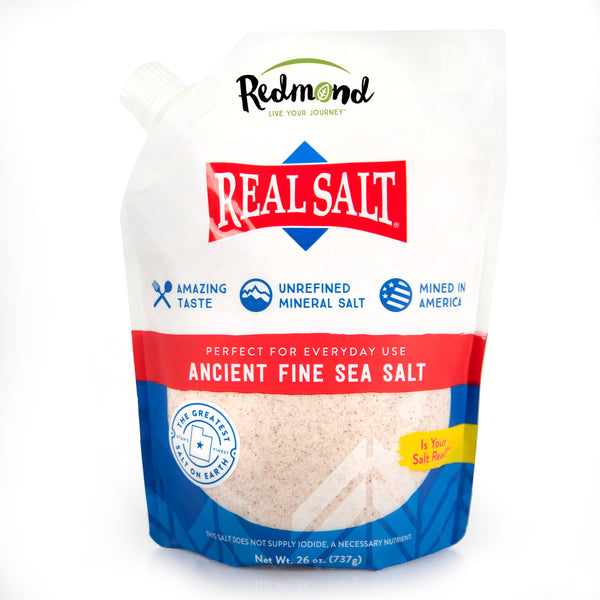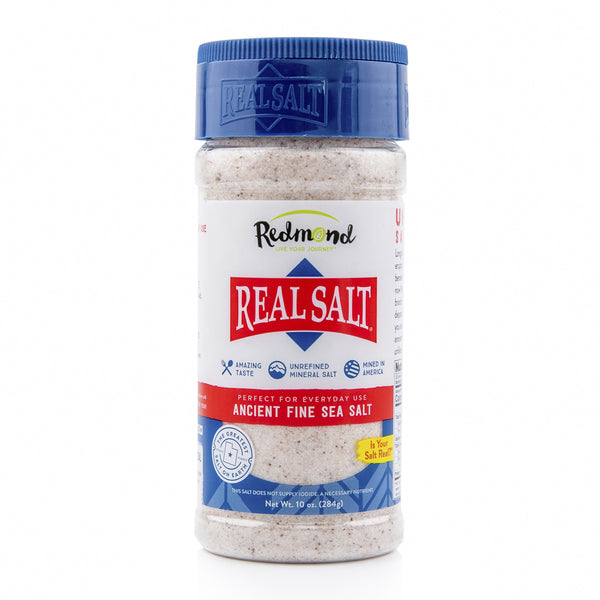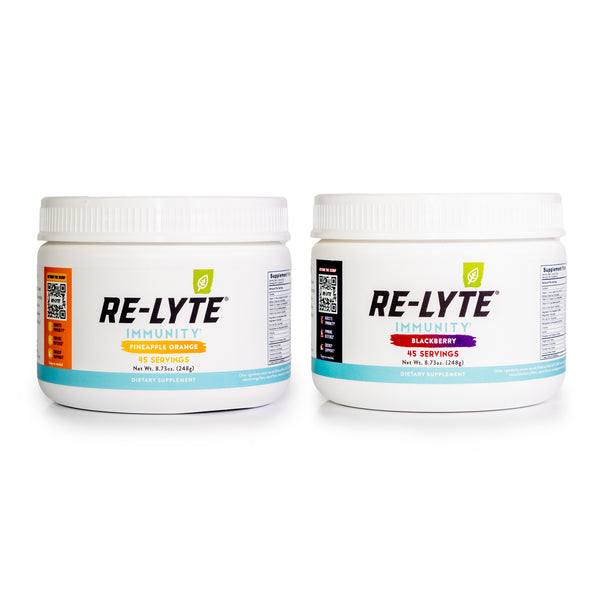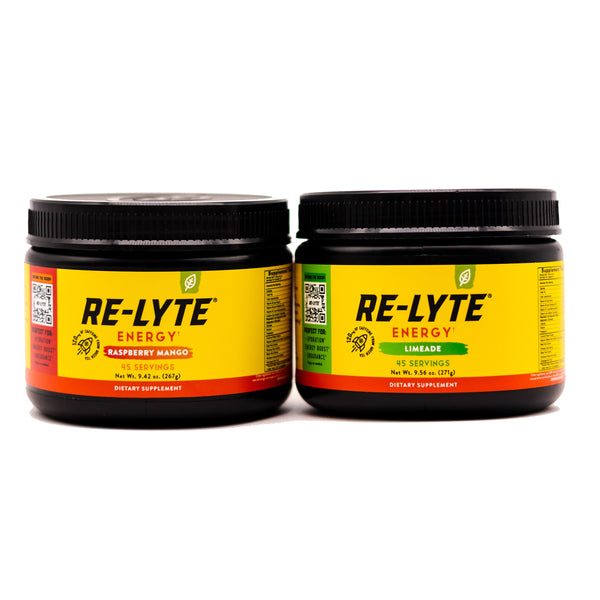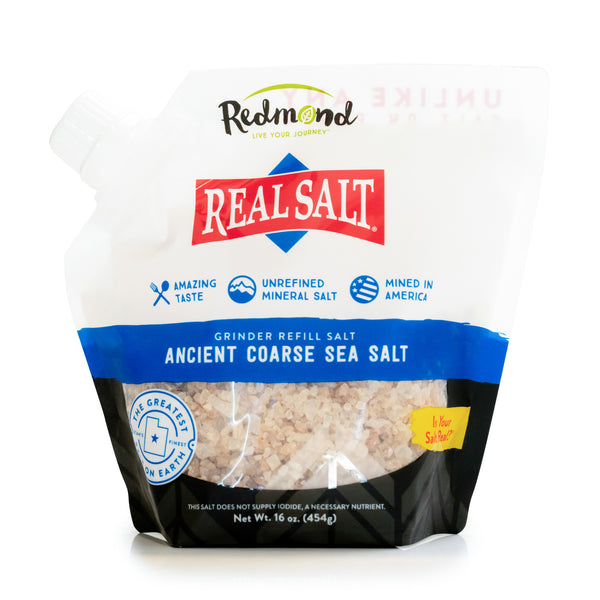Does Salt Really Cause Weight Gain? Here’s The Truth…

Article at a Glance:
- Eating unrefined salt is linked to a number of health benefits and does not contribute to weight gain.
- Restricting salt intake can cause the body to crave sodium and sugar, making it difficult to say “no” to unhealthy, sugary and fatty snacks.
- Salt is necessary for survival and unrefined salt is a key part of a balanced health and wellness routine.
- The amount of salt a body needs depends on a number of factors, including activity level and diet, but likely will be between 3,000 and 5,000 mg of sodium per day.
These days, there is so much advice swirling around about health and wellness that it can be hard to keep track of what is true. You may hear people say, “I don’t eat anything after 7 pm” or “sweets make my skin break out” and of course, “stay away from salt, it’s bad for x, y, z reasons!”
But, as most of us know, all of these hard and fast rules can’t be true. How would we still be here if they were? In fact, a lot of modern-day diet advice is not based on fact.
Salt in particular is commonly perceived as something we consume too much of, with items like low-sodium soy sauce and chicken broth becoming increasingly common on grocery store shelves. So, while we can’t dispel every health myth that exists, we can shed light on one of the biggest ones: salt and weight gain.
Today, we’re once again going to consult one of our favorite evidence-based nutritionists and cardiovascular scientists, Dr. James DiNicolantonio. Dr. DiNicolantonio’s extensive research for his book The Salt Fix: Why the Experts Got It All Wrong--and How Eating More Might Save Your Life will illuminate a surprising truth about salt and weight gain.
If Salt Does Not Cause Weight Gain, Does It Provide Additional Health Benefits?
Contrary to the anti-salt narrative we often hear in our daily lives, salt does not contribute to weight gain. Here at Redmond, we are of course passionate about salt, but much of this is due to salt’s many amazing and proven benefits. Here are just a few benefits to your health and diet when you consume the appropriate amount of sodium:
What Factors Could Actually Be Behind Weight Gain?
When it comes to diet, at the core of many peoples’ weight gain is binging on sweets, snacks, and other unhealthy foods, not their consumption of salt. Unfortunately, when we try to restrict our sodium intake below our required daily amount, we can unknowingly trigger overeating behaviors. By reaching for a “low-sodium” snack, or by skipping salt altogether, our body will crave sodium throughout the day. Later on, this can cause us to reach for unhealthy, fatty snacks that we probably would have skipped otherwise.
Low salt intake has also been linked to sugar cravings. When you keep your salt intake too low, the pathways in your brain that crave sugar can become more sensitive, meaning any sugar cravings you experience could be that much more intense.
Overall, by adhering to the “anti-salt” diet, we can be putting ourselves at greater risk for weight gain.
How Does Salt Keep Me Energized and At Peak Performance?
There’s a reason salt is present in nearly all hydration drinks on the market - we need salt to survive and we lose a lot when we are active, from morning walks to high-intensity circuit training. To perform at our peak and banish weight gain, salt is a key ingredient to our health and wellness routine.
However, many of these hydration beverages do not contain nearly enough sodium to replenish us and keep our energy, focus, and recovery levels where they need to be to operate at peak performance. The best way to consume your sodium is throughout the day in the form of unrefined salt, and in healthy meals and snacks.
How Much Salt Is Optimal For My Daily Diet?
Now that we’ve dispelled the myth of salt and weight gain, the question becomes: how much salt should I consume? The answer is a bit more complex.
Depending on many factors, including activity level and energy levels, you may need to consume more or less salt than your partner, friend, or coworker. Although the American Heart Association tells us to consume less than 1,500mg of sodium per day, studies have found that some people can lose up to 2,000 mg of salt per hour of exercise. As we can see, 1,500mg could be a severely-low recommendation for many.
In all, Dr. DiNicolantonio recommends between 3,000-5,000mg of sodium per day. The key to honing this number is listening to your body and adjusting from there.
What Are The Optimal Ways To Meet My Salt Intake?
As we mentioned above, refined salt and unrefined salt do not have the same effect on our bodies. Real Salt is just that, real. Our original, unrefined salt is free of additives and pollutants, only containing the natural minerals sodium level that nature intended.
If you’re looking for a more direct way to incorporate salt into a healthy lifestyle, our Re-Lyte line makes it easier than ever. Try the Re-Lyte Pre-Workout to prime your body for a workout or a busy day by boosting energy and increasing hydration. Finally, incorporate the Re-Lyte Hydration anytime to keep your cells and muscles optimally hydrated for a healthier life. Salt is a tool for your health, don’t shy away from it, embrace it!
Sources:
The Salt Fix - Dr. James DiNicolantonio




